Your body undergoes significant changes during detoxification from drugs or alcohol. Understanding the importance of proper nutrition in detox is essential, as it plays a vital role in supporting your recovery journey and managing withdrawal symptoms effectively.
How Substance Abuse Affects Nutrition
Substance abuse creates nutritional deficiencies by:
- Disrupting your body’s ability to absorb nutrients
- Damaging vital organs like the liver and kidneys
- Depleting essential vitamins and minerals
- Altering your natural hunger signals
The Importance of Nutrition in Detox
The right nutrition helps rebuild your body’s strength during detox through:
- Replenishing depleted nutrients
- Supporting organ function and repair
- Stabilizing blood sugar levels
- Boosting immune system response
At Cedar Oaks Wellness, we’ve observed how proper nutrition can transform the detox experience. Your body needs specific nutrients to heal from substance abuse damage. A balanced diet rich in proteins, vitamins, and minerals provides the building blocks for recovery, helping you manage withdrawal symptoms and supporting your body’s natural healing processes.
Empowering Your Recovery Journey
Understanding the connection between nutrition and detox success empowers you to make informed choices about your recovery journey. To aid this process, we recommend following our 10 essential tips to prepare for detox, which provide valuable insights on diet, exercise, emotional care, and managing withdrawal symptoms.
If you’re seeking support in this journey, consider our drug detox program at Cedar Oaks Wellness, designed to provide a safe and effective path towards recovery. For those looking for local resources, our guide on finding a drug detox near you in Ohio can be incredibly helpful.
Key Nutrients for Effective Detoxification
A balanced diet during recovery acts as your body’s natural defense system. Your nutritional choices directly impact the success of drug detoxification and your path to wellness. Here’s what your body needs during this critical phase:
Essential Nutrients for Recovery:
- Proteins: Build and repair damaged tissues
- Complex carbohydrates: Stabilize blood sugar levels
- Healthy fats: Support brain function
- Fiber: Aid digestive health
Nutrient-dense whole foods pack powerful healing properties for your detox journey. These foods provide concentrated amounts of vitamins, minerals, and antioxidants without empty calories:
Top Nutrient-Dense Foods:
- Dark leafy greens
- Berries and citrus fruits
- Lean proteins
- Nuts and seeds
- Whole grains
- Fermented foods
Your body requires specific nutrients to rebuild and heal from substance use. A diet rich in these whole foods supports:
- Liver function
- Immune system strength
- Energy levels
- Mental clarity
- Digestive health
Drug detox programs emphasize the importance of proper nutrition timing. Eating regular, balanced meals helps:
- Reduce cravings
- Stabilize mood
- Support sleep patterns
- Maintain energy levels
- Aid physical recovery
Essential Nutrients for Supporting Detoxification Processes
Your body needs specific nutrients to power through detoxification effectively. Let’s explore the key players in this crucial process:
B Vitamins: Your Brain’s Best Friends
- B6 helps create neurotransmitters for mood regulation
- B12 supports nerve function and red blood cell formation
- B-complex vitamins boost energy levels during withdrawal
- Thiamine repairs alcohol-induced brain damage
Antioxidants: Your Defense System
- Vitamin C neutralizes harmful free radicals
- Vitamin E protects cell membranes
- Selenium supports liver function
- Beta-carotene reduces inflammation
Protein: Your Recovery Building Blocks
- Essential amino acids repair damaged tissues
- Lean proteins stabilize blood sugar levels
- Complete proteins support neurotransmitter production
- High-quality protein sources aid muscle recovery
Your body experiences significant stress during substance abuse, creating an abundance of free radicals. Antioxidants work as your internal cleanup crew, neutralizing these harmful compounds. B vitamins step in as energy producers, helping your brain heal and regulate mood. Protein acts as your body’s construction team, rebuilding damaged tissues and supporting organ function.
These nutrients are essential, especially when undergoing a detox process, such as in a benzo rehab program where the body needs extra support to recover from benzodiazepine addiction.
You’ll find these nutrients in foods like:
- Eggs and lean meats (B vitamins, protein)
- Berries and citrus fruits (antioxidants)
- Fish and legumes (protein, B vitamins)
- Nuts and seeds (antioxidants, protein)
Managing Withdrawal Symptoms with Proper Nutrition Strategies
Withdrawal symptoms can be intense, but strategic nutrition choices help minimize discomfort and support your body’s healing process. Let’s explore specific nutritional approaches for common withdrawal challenges:
Electrolyte Balance Restoration
- Consume potassium-rich foods like bananas, sweet potatoes, and leafy greens
- Add natural sodium through bone broth or sea salt
- Include magnesium sources such as nuts, seeds, and whole grains
- Stay hydrated with water and coconut water
Gastrointestinal Symptom Management
- Combat nausea with ginger tea or peppermint
- Address diarrhea with BRAT diet (bananas, rice, applesauce, toast)
- Ease constipation through fiber-rich foods like oats and legumes
- Support gut health with probiotic-rich foods like yogurt and kefir
Blood Sugar Stabilization
- Eat small, frequent meals throughout the day
- Choose complex carbohydrates over simple sugars
- Pair proteins with carbohydrates at each meal
- Keep healthy snacks readily available
These nutrition strategies work best when implemented under professional guidance. At Cedar Oaks Wellness, our experts specialize in nutrition in detox, creating personalized meal plans that address your specific withdrawal symptoms while supporting your body’s natural detoxification processes.
Specific Dietary Considerations for Successful Alcohol Detoxification
Alcohol detoxification requires specific nutritional support to repair damaged tissues and restore vital bodily functions. Omega-3 fatty acids play a crucial role in this healing process by:
- Reducing inflammation throughout the body
- Supporting brain health and cognitive function
- Helping rebuild damaged cell membranes
- Promoting liver regeneration
The best sources of omega-3s include:
- Wild-caught fatty fish (salmon, mackerel)
- Chia seeds
- Flaxseeds
- Walnuts
Low-fat proteins serve as essential building blocks during alcohol detox:
- Lean chicken breast
- Turkey
- Fish
- Egg whites
- Greek yogurt
- Legumes
These protein sources help:
- Stabilize blood sugar levels
- Support muscle maintenance
- Aid liver function
- Reduce cravings
A balanced combination of omega-3s and low-fat proteins creates a foundation for successful alcohol detox. Your body needs these nutrients to repair alcohol-induced damage to organs, particularly the liver and brain. Research shows that individuals who maintain adequate protein intake during detox experience fewer complications and achieve better recovery outcomes.
The timing of meals matters – eating small, frequent portions of protein-rich foods helps maintain steady energy levels and supports the body’s healing mechanisms during the detox process. For those seeking professional help with their alcohol detoxification journey, Cedar Oaks Wellness Center in Cincinnati, Ohio offers compassionate support and comprehensive treatment programs.
Potential Risks and Challenges During Detox That Can Be Mitigated by Nutrition Intervention Strategies
Detoxification brings significant health risks that require careful management. Seizures and delirium tremens rank among the most severe complications during withdrawal, particularly in alcohol detox cases.
Proper nutrition plays a vital role in reducing these risks:
- Magnesium-rich foods help prevent seizure activity
- B-complex vitamins support brain function and reduce confusion
- Potassium-dense foods stabilize nerve impulses
- Zinc supplementation decreases the severity of withdrawal symptoms
Your body needs specific nutrients to maintain stable blood sugar levels and proper neurotransmitter function during detox. A diet rich in complex carbohydrates helps regulate blood glucose, while adequate protein intake supports neurotransmitter production.
The risk of relapse increases when nutritional needs aren’t met. Physical discomfort and mental fog from nutrient deficiencies can trigger cravings. A structured meal plan featuring regular, nutrient-dense meals helps maintain steady energy levels and supports your body’s healing mechanisms.
At Cedar Oaks Wellness, we monitor these risks closely and adjust nutritional interventions based on individual needs and withdrawal severity.
Long-Term Benefits Of A Comprehensive Nutrition Approach To Support Lasting Recovery Outcomes
A well-structured nutritional plan creates lasting positive changes in your recovery journey. Focusing on nutrition in detox leads to significant improvements in organ repair, particularly in the liver and brain tissues damaged during substance use. Research shows that consistent nutrition support helps stabilize neurotransmitter production, reducing the risk of relapse and improving mental health outcomes.
Key Long-Term Benefits:
- Enhanced immune system function through regular intake of antioxidants and vitamins
- Improved cognitive performance and memory restoration
- Balanced mood and reduced anxiety levels through proper gut-brain axis support
- Sustained energy levels and metabolic health
- Better sleep quality and circadian rhythm regulation
Your body’s healing continues long after the initial detox phase. Prioritizing nutrition in detox and beyond supports cellular regeneration and helps maintain optimal brain chemistry. Studies indicate that individuals who maintain proper nutrition during and after detox show higher success rates in long-term sobriety. This healing extends to psychological well-being, with proper nutrition playing a crucial role in managing stress and emotional regulation during the ongoing recovery process.
Conclusion
Your path to recovery deserves a strong nutritional foundation. A well-planned detox program, such as our nutrition-supported detox program at Cedar Oaks Wellness, integrates proper nutrition as a cornerstone of healing, supporting your body’s natural detoxification processes and promoting lasting wellness.
At Cedar Oaks Wellness, we understand the vital connection between nutrition in detox and successful recovery outcomes. Our comprehensive approach combines evidence-based nutritional strategies with personalized support to help you navigate the challenges of withdrawal and healing.
Ready to start your healing journey? Our experienced team at Cedar Oaks Wellness Center in Ohio is here to guide you through a nutrition-supported detox program tailored to your needs. We’ll help you:
- Build sustainable eating habits
- Restore nutritional balance
- Strengthen your body’s natural healing abilities
- Create a foundation for long-term recovery
Whether you need inpatient drug rehab or prefer our outpatient addiction treatment, we have specialized programs designed to meet your unique needs. Take the first step toward healing – contact us today at Cedar Oaks Wellness to learn how our nutrition-focused detox program can support your recovery journey.


